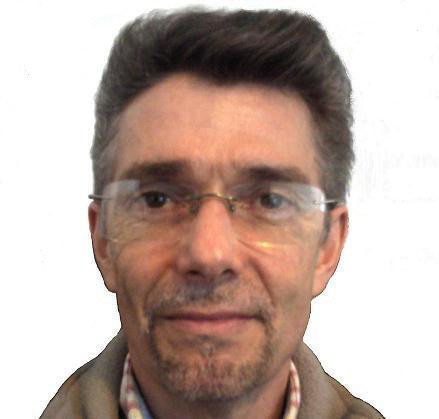I felt wanted, a part of something, I remember feeling that I mustn't do, or say anything that would disaffect me from this group of people who'd invited me into their midst. I felt that kindness such as this, required commitment, and that I had to conduct myself in a way that would please them. I had to think carefully about what I said and did in their company, so to keep their approval.
'Come in tae the body o' the kirk', translated, means come and join us; we want you to be one of us. In Scotland, the word 'kirk' means church. The saying no doubt dates back to a time when the kirk was all-encompassing, and is no doubt rooted in the maxim that a truly Christian society excludes no one. We don't have to be religious to appreciate that. I'm not religious, but I think that we all respond best when we feel that we have a value to others.
In 1997, Tony Blair took office amid much jubilation. I remember the happy cheering crowds out on the street. I still remember the emotion I felt on that May morning - as the sun shone. I remember too, the feeling of hope. Union flags were flying as Tony and Cherie Blair took a long triumphant stroll along Downing Street shaking hands, smiling, laughing and backslapping amid the euphoria. I remember a song, "Things Can Only Get Better". I, like many, I suspect, felt I was to become part of something: a change in society, which meant that everyone was invited. We all had a value.
Yet, I don't remember any promise of greater distribution of material wealth; that didn't seem so important. The predominant feeling was that a nation had made a decision about the kind of society it wanted to be; that was all that mattered; if that was put right, no difficulty was insurmountable. Everyone had a value. Everyone had a "stake" in society. No one was on the scrapheap. Tony and Cherie reached out their hands to the people - all the people. Then they went into Number 10 Downing Street and shook hands with The Establishment.
In 2010, Nick Clegg, now UK Deputy Prime Minister, said, "Don't let anyone tell you, that it can't be different this time". That put him on the political map. His Liberal Democrat Party held the balance of power and we woke on the morning after the May 2010 Election, to find that we had a hung parliament. He took his party into coalition with the Conservative Party, went into Number 10 Downing Street, 'Sir Humphrey' smiled at him and Nick shook hands with The Establishment. If the establishment had not been his tribe before, it is now.
However, when we accept an invitation into 'the body o' the kirk', we don't want to do or say anything that might offend our new tribe.
I suppose that's what happens when a young person joins a gang. "Come with us my friend. Join our tribe and we'll go bling-hunting together. We think you belong amongst us. We'll take things from others who are not part of our tribe. Tonight we will riot and loot against those who do not invite us amongst them. You are invited to come with us."
No one else wants you. No one else has given you a value, or a stake in things. No job, no hope of involvement in anything that gives you a feeling of worth, a reason to jump out of bed in the morning and offer your services to the tribe. The only people, who evoke the emotion that feeds that sense of belonging and worth, are those who want you to loot and riot with them. Do you go? Some do, but actually, comparatively few, when you consider the demographics.
The politicians say you're violent criminals. Of course you are. They say that you do it for gain. Of course you do. Banksters and corporations don't do what they do, to gain everyone's approval; they do it for the approval of their own tribe. Whether people are banksters or blingsters, the motivation is the same - to be part of a group to whom they feel an affinity. Some, no doubt feel so emotionally tied that they can't contemplate ever provoking the disapproval of their tribe, regardless of the demands it puts upon them. It often seems that the bling or the financial reward isn't the motive, but merely the badge.
This same emotion manifests in every social stratum - and on the battlefield too. In the UK, we award soldiers who do deeds of great courage and self-sacrifice with the Victoria Cross. When we read or hear the details of what these people have done, we find that they didn't do it for financial gain; they weren't necessarily just following orders. It's not even as if they were all patriots. Furthermore, VC awardees come from all social spheres, colours and creeds. Some were from the slums; some had criminal records; some were from the nobility. Yet, we know that commitment and camaraderie amongst brothers-in-arms are the predominant motivators behind the deeds that earn our heroes their VCs. They feel a bond that often overrides concern for their own safety.
People do both extraordinarily good and bad things for their tribes. Wouldn't it be good if we could take that enormous emotional potential and use it for the common good? What sort of society replaces that with robots, computers and plays it off spitefully against outsourced cheap labour? That only serves the interests of an elite and socially distant tribe. Why is all that emotional energy out there on our streets causing mayhem for us, when it could be enhancing our lives? Why is it that, amid all the political rhetoric, there has been so little progress made towards bringing everyone back, into 'the body o' the kirk'?





